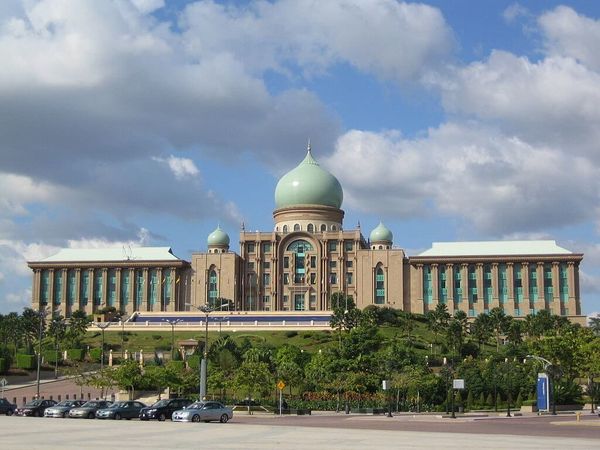By Danial Dzulkifly
SHAH ALAM, March 19 – Prime Minister Datuk Seri Anwar Ibrahim’s revival of the proposal to introduce a 10-year limit for Malaysia’s highest political office has been lauded as a crucial reform, but experts argue it also presents challenges to the country’s political structure.
Political observers view the amendment to the Federal Constitution as a necessary check and balance, but stress that political will and consensus will be required to see it through.
Universiti Sains Malaysia political science professor Ahmad Fauzi Abdul Hamid said the proposed tenure cap is crucial in preventing power consolidation and ensuring accountability.
“it reminds the Prime Minister that he is fully accountable for his actions while in office and could be prosecuted if there is evidence of wrongdoing.
“Without a limit, a sitting Prime Minister may be tempted to prolong his rule indefinitely, especially if he has committed offences while in power,” he said.
However, Fauzi pointed out that a fixed tenure could also hinder long-term policy planning, particularly in economic development.
“Ten years is a relatively short period for major policies to bear fruit. The New Economic Policy, for example, spanned two decades, and many economists still believe it was insufficient.
“In Malaysia’s dynamic political landscape, where coalitions change frequently, economic continuity could be disrupted with every leadership transition,” he said.
[caption id="attachment_392235" align="aligncenter" width="1200"] Prime Minister Anwar Ibrahim speaks at an event to announce a deal with Arm Holdings to acquire the firm’s chip design plans for local manufacturers, in Kuala Lumpur, on March 5, 2025. — Picture by REUTERS[/caption]
Prime Minister Anwar Ibrahim speaks at an event to announce a deal with Arm Holdings to acquire the firm’s chip design plans for local manufacturers, in Kuala Lumpur, on March 5, 2025. — Picture by REUTERS[/caption]
Fauzi also pointed out that the proposed limit mirrors the United States’ two-term presidency, but stressed fundamental differences between the two systems.
“In the US, the President is directly elected by the people, whereas Malaysia follows the Westminster model, where the Prime Minister is appointed based on parliamentary majority.
“If we want a truly effective term limit, we may need to rethink how the Prime Minister is elected,” he said.
Nusantara Academy for Strategic Research senior fellow Azmi Hassan supported the idea, but cautioned that the lack of proper safeguards could lead to instability.
“Having a term limit is a good step, but it could create complications, especially if a prime minister is forced to step down mid-term due to the limit rather than through an election.
“Malaysian politics is coalition-driven, and no single party has the numbers to govern alone. If the Prime Minister changes mid-way, securing support from coalition partners could become problematic,” he said.
Azmi also suggested that if the term limit is implemented, Malaysia’s electoral system may need adjustments, such as introducing a fixed parliamentary term similar to the United Kingdom.
“The current system allows the Prime Minister to dissolve Parliament at his discretion. To avoid political uncertainty, we may need to establish a fixed parliamentary term, perhaps requiring a minimum of four years before an election can be called,” he said.
[caption id="attachment_388936" align="aligncenter" width="1110"] The nation’s crest adorns a wall in the Parliament building in Kuala Lumpur in this file photo. — Picture by BERNAMA[/caption]
The nation’s crest adorns a wall in the Parliament building in Kuala Lumpur in this file photo. — Picture by BERNAMA[/caption]
Meanwhile, Singapore Institute of International Affairs senior fellow Oh Ei Sun highlighted that while a 10-year cap could refresh leadership, it may bring about unintended consequences.
“History shows that leaders with fixed short tenures may rush to accumulate wealth while in office, knowing their time is limited.
“More than just a term cap, we need to strengthen the independence of our judiciary, prosecution, and Parliament to ensure a real check-and-balance system,” he said.
This came after Anwar reaffirmed his support for limiting a Prime Minister’s tenure to 10 years, but acknowledged the proposal would require a constitutional amendment with the backing of two-thirds of MPs.
Speaking at the DAP’s 18th national congress in Shah Alam on Sunday, he agreed with party secretary-general Anthony Loke’s call for the reform to be implemented within the next two years.
“I agree with limiting the position of Prime Minister to 10 years, because we know, if (a Prime Minister is in office for) 22 years, the country will suffer,” he said.
Although Anwar did not elaborate, his remarks appeared to reference former Prime Minister Tun Dr Mahathir Mohamad’s first tenure, which lasted 22 years.
The move to impose a two-term limit was first introduced in 2019 under the Pakatan Harapan administration.
The late Datuk Liew Vui Keong, then Minister in the Prime Minister’s Department, tabled the Constitution (Amendment) Bill 2019 for its first reading in the Dewan Rakyat on December 3 that year.
However, the reform was never enacted as the Pakatan Harapan government collapsed in 2020.




